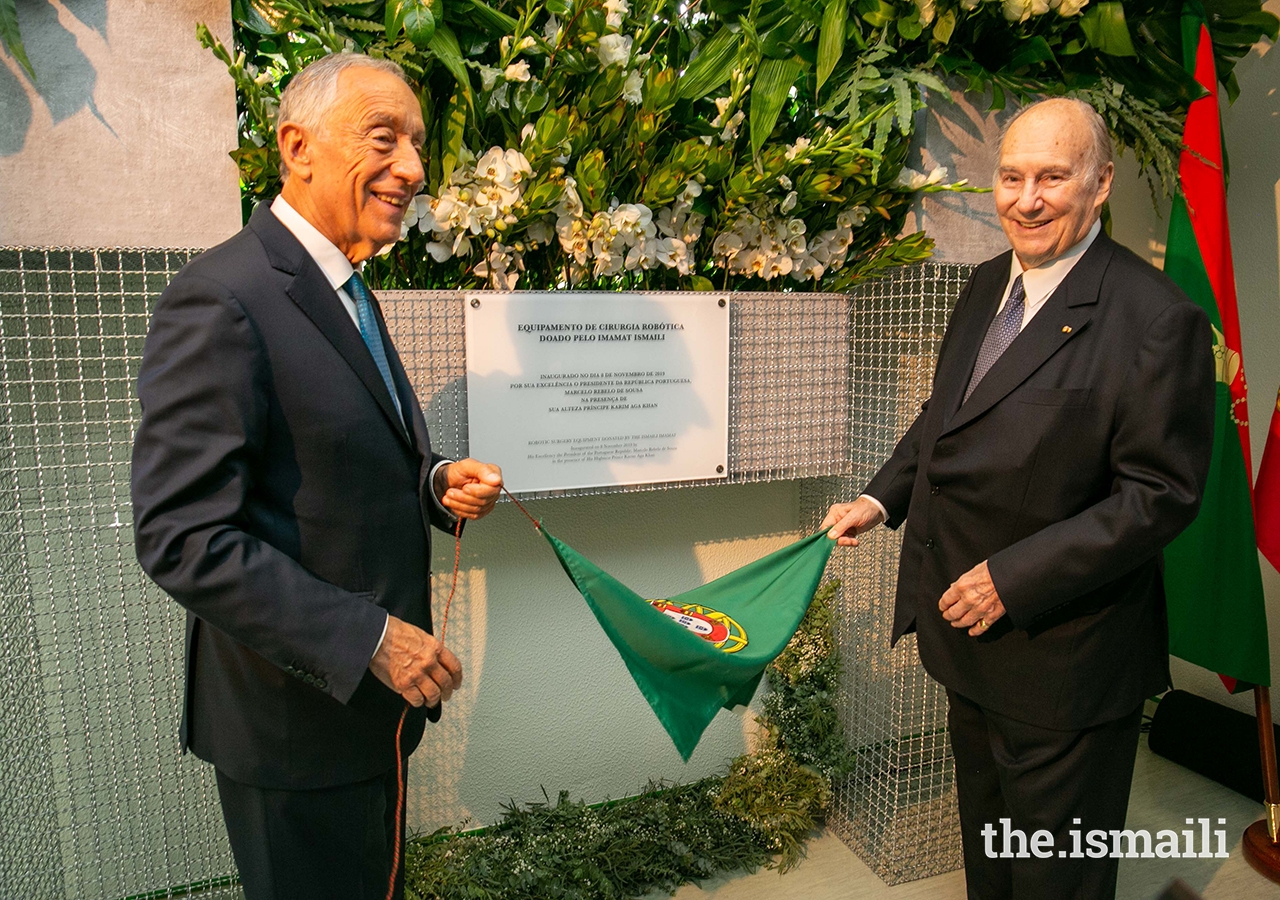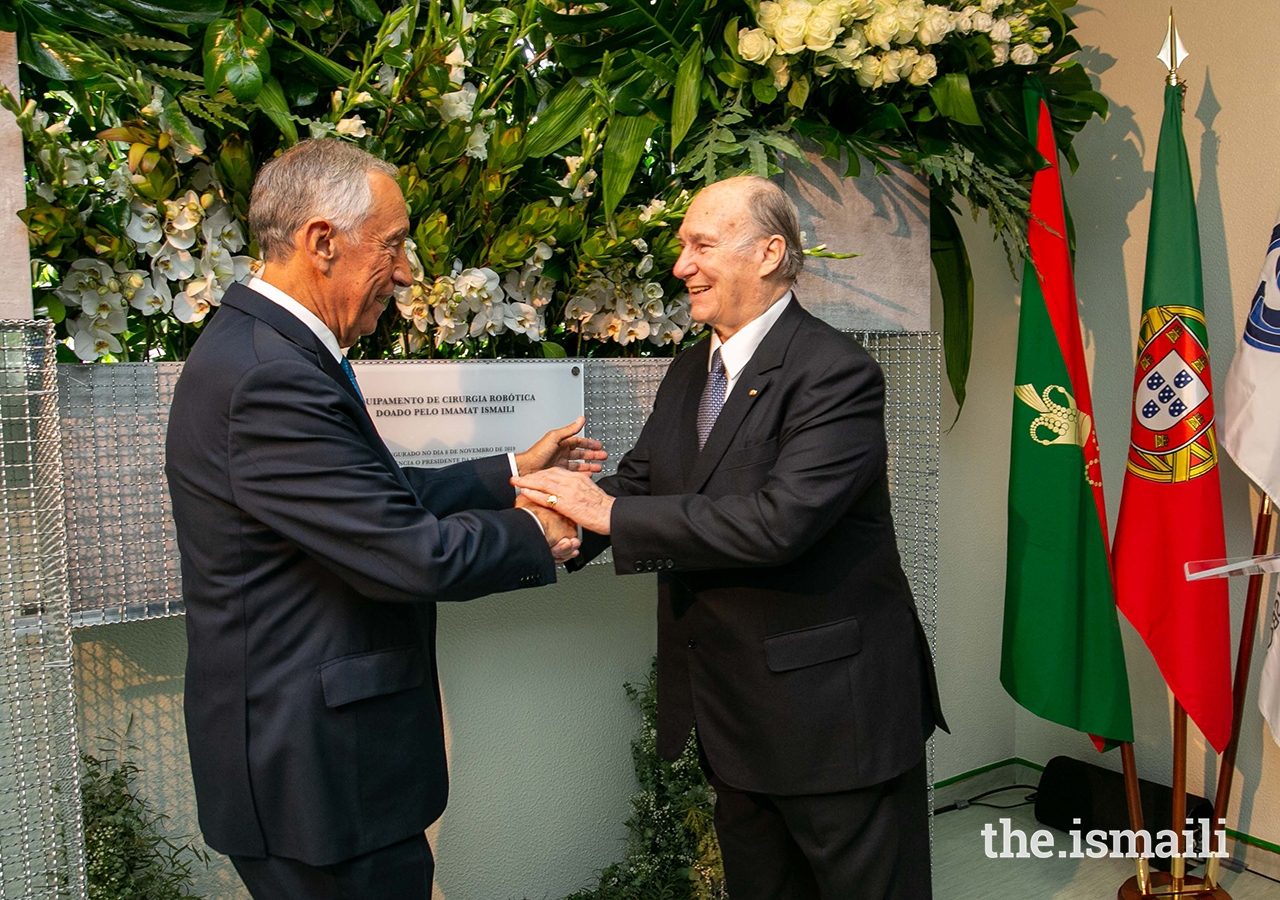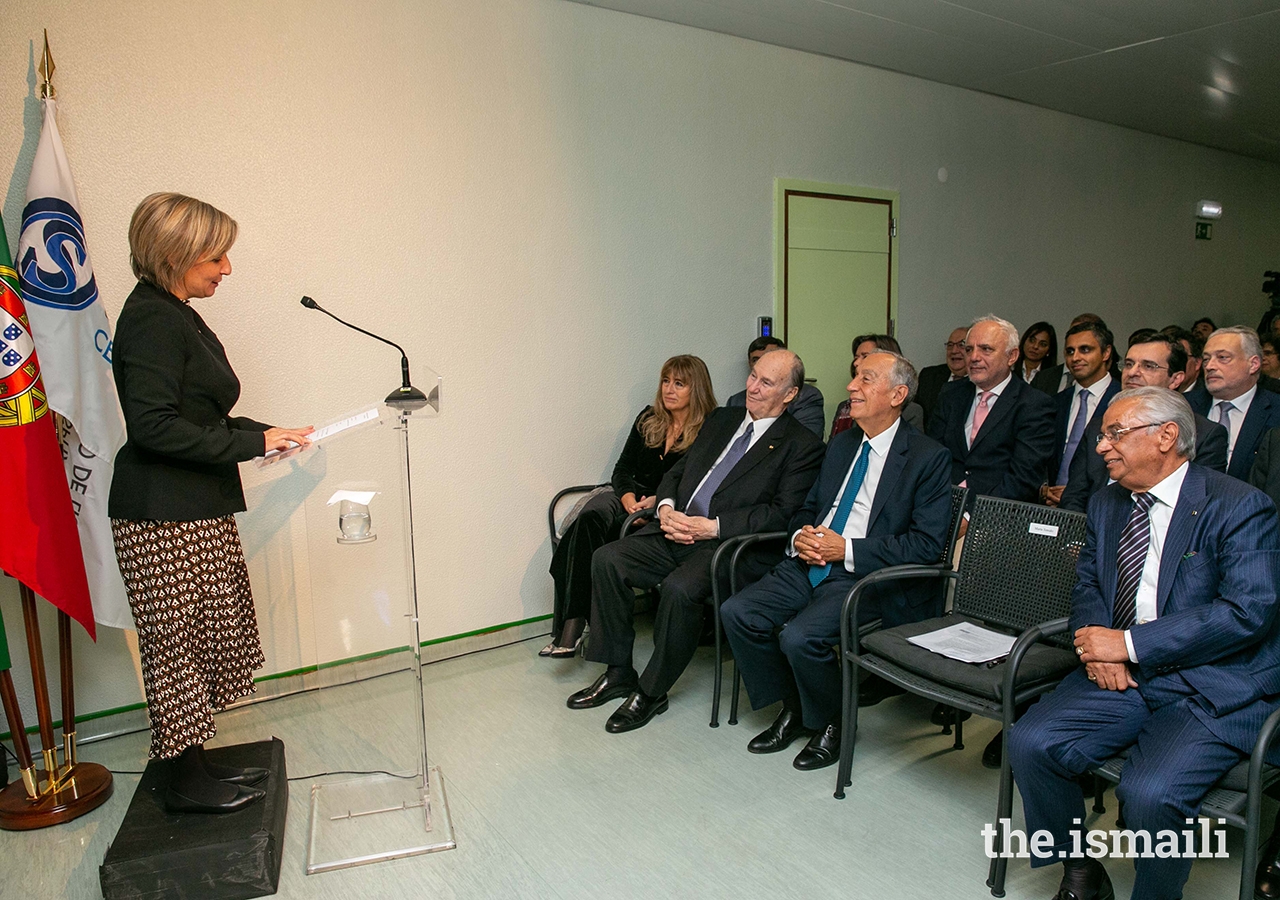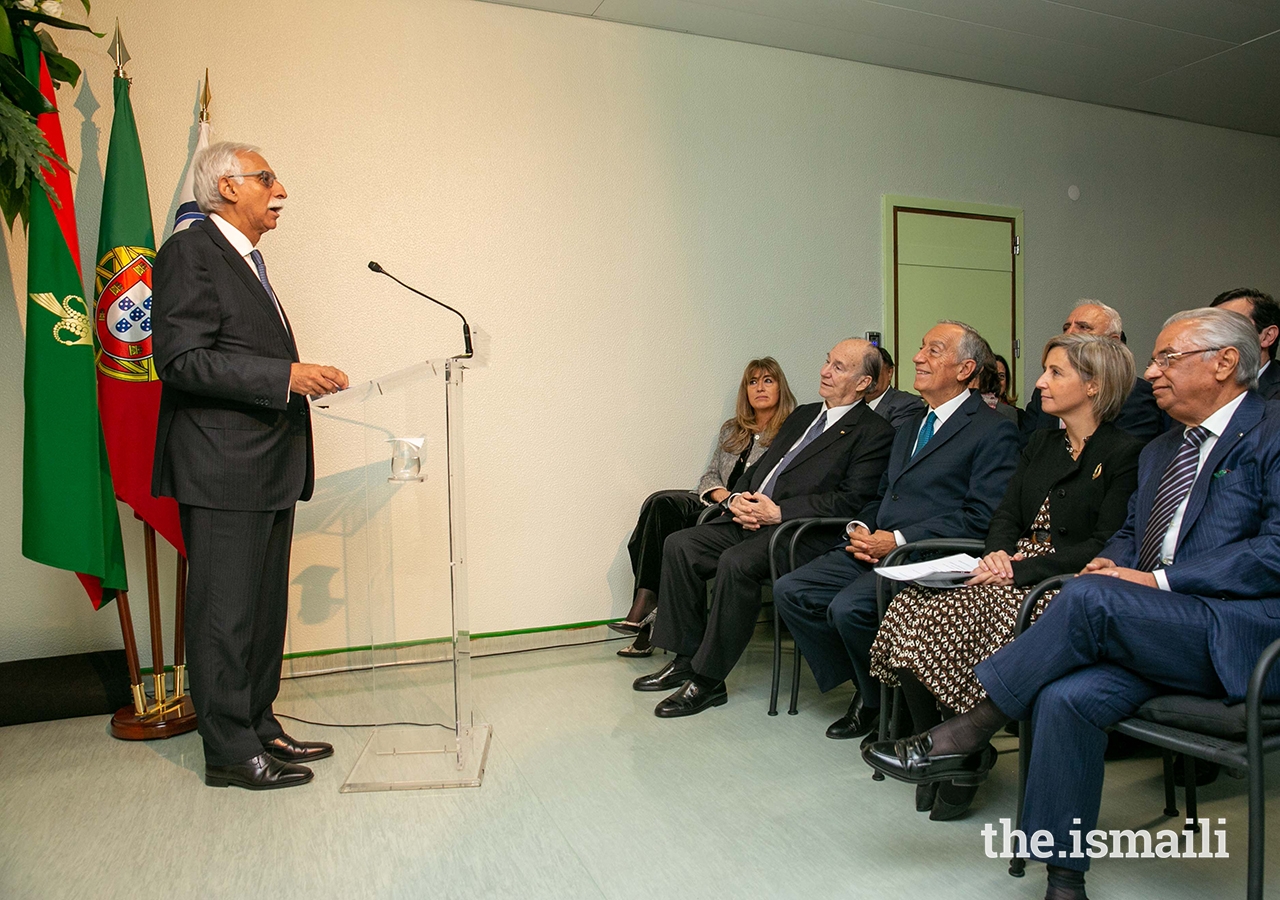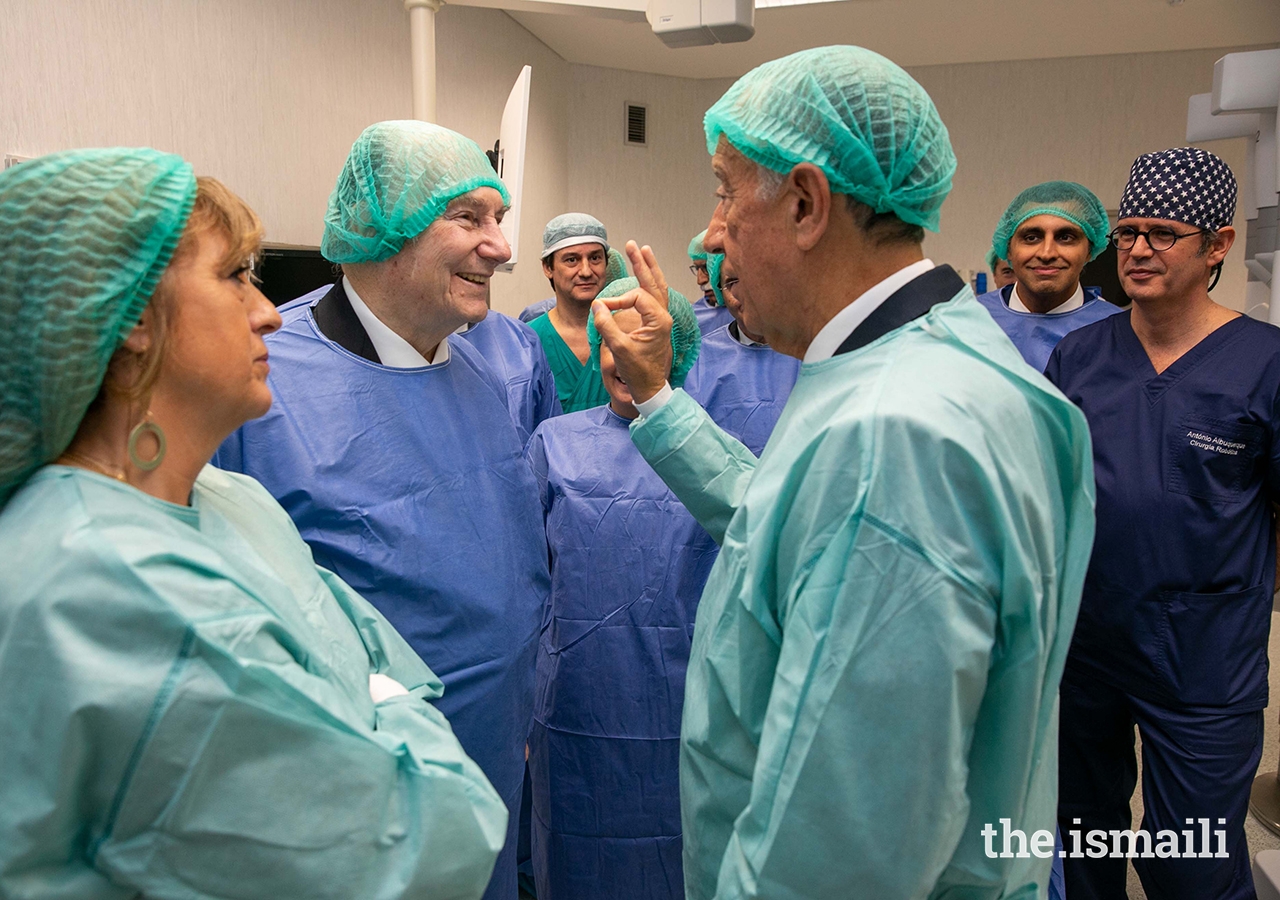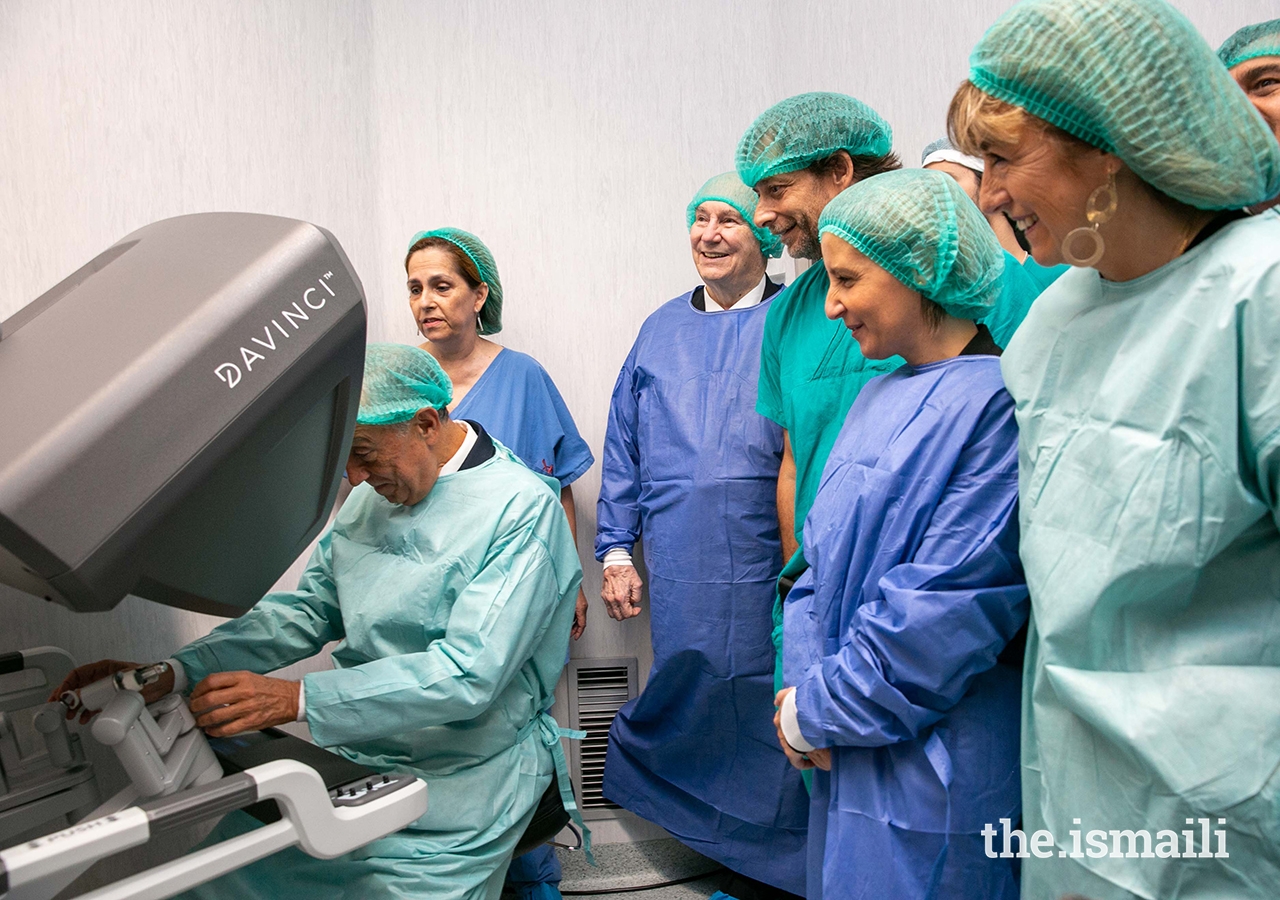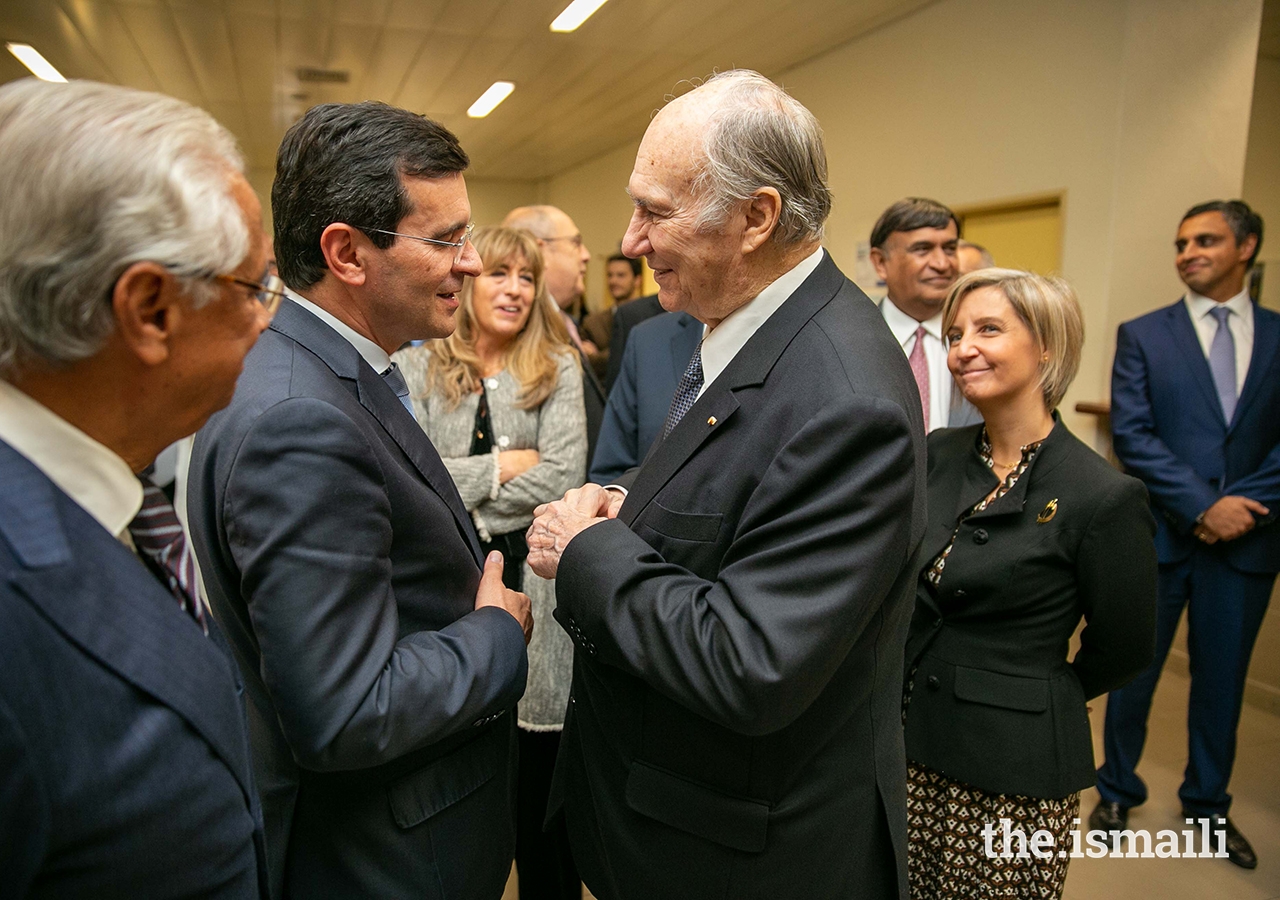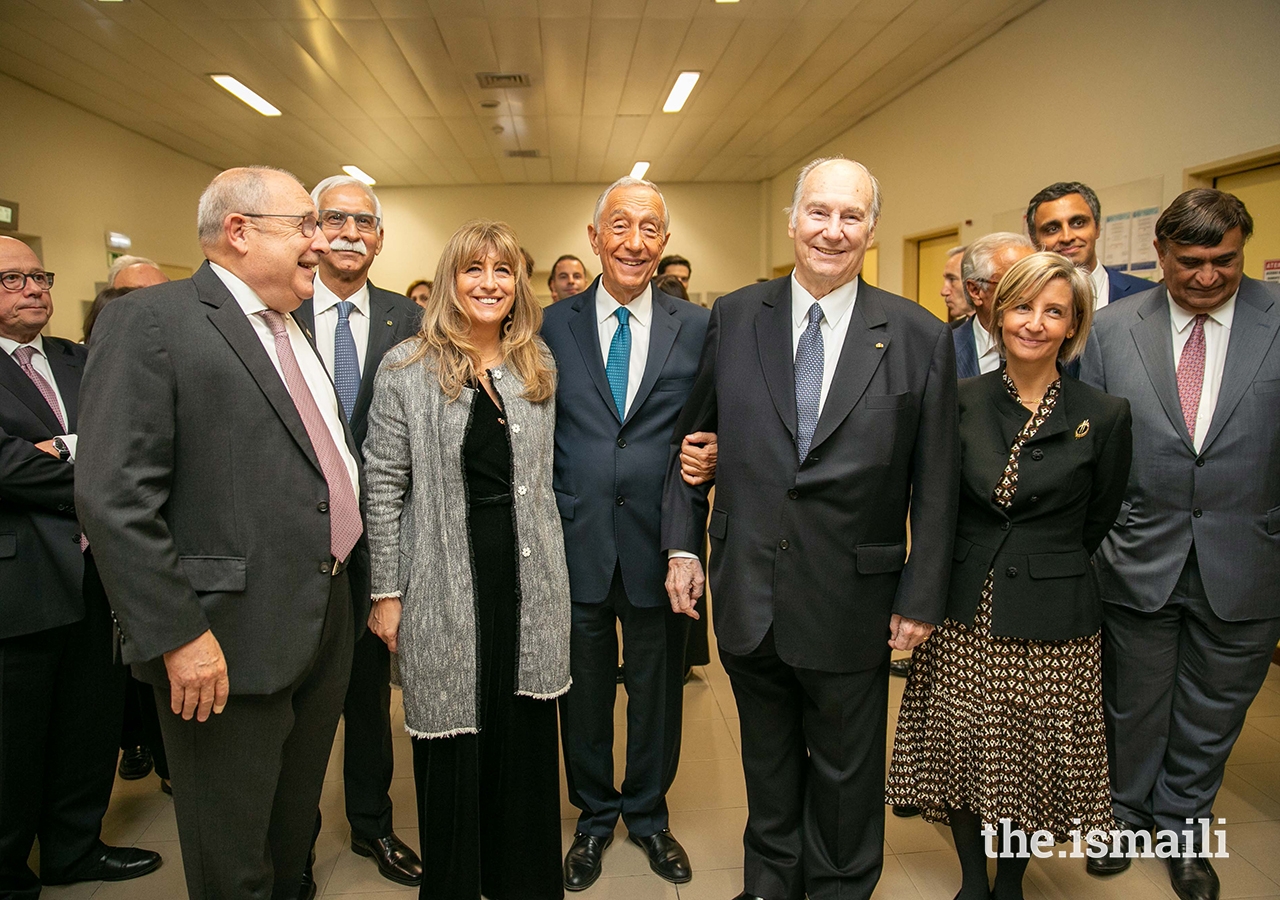The Da Vinci surgical equipment introduces cutting-edge, robotics-assisted technology for performing advanced operations on patients. Surgical robots are used in various medical specialties as extensions of a surgeon's hand, allowing for greater precision and less invasive surgical procedures. The ceremony today marked the first such robot to be installed in a public hospital in Portugal, ensuring wider accessibility and service provision for the entire population.
Addressing guests gathered at the event, Firoz Rasul, President of the Aga Khan University, said that the technology “will expand access to high-quality surgical care for Portuguese suffering from a wide range of conditions, helping to ensure that they can lead healthy lives. As such, it will positively impact thousands of individuals and their loved ones.”
“We are looking forward to seeing the evidence of this technology’s positive impact on quality of life through improved outcomes from difficult surgical procedures,” continued President Rasul.
Portugal’s Minister of Health, Marta Temido, spoke of the importance of modern medicine to address healthcare challenges, and thanked Mawlana Hazar Imam for the donation, saying, “We must find innovative and efficient ways to continue to provide quality and sustainable healthcare. Which brings us to the generous gesture His Highness the Aga Khan has bestowed… a fantastic gift.”
The growing field of medical technology encompasses a wide range of healthcare solutions used to treat medical conditions affecting people all over the world. These innovative technologies are intended to improve the quality of healthcare delivery through earlier diagnosis and reduction in hospital stays, as well as rehabilitation times.
During the event, Hazar Imam and President Marcelo Rebelo de Sousa were given a tour of the hospital, and joined a first-hand presentation of the equipment in action. Speaking to the media after the event, His Excellency the President commented: "I was very impressed. Both His Highness the Aga Khan and myself experimented with the machine, and it is indeed another world, a leap forward. And it has a very special meaning because it is the first robot in a public hospital in Portugal." They also met with patients who had been treated with assistance from the Da Vinci system, who spoke of their experiences and post-treatment rehabilitation.
The hope is that, in future, robot-assisted surgery will be performed remotely, so that patients in rural or isolated areas can be treated by a highly-trained surgeon, even in cases where the skillset may not exist locally. Just yesterday, a team in Toronto undertook the world’s first robot-assisted brain aneurysm surgery.
The donation of the medical equipment follows a Memorandum of Understanding signed last year between the Aga Khan University and the Portuguese Ministry of Health. The agreement established close collaboration between the two parties on medical innovation, training and research, data analysis, knowledge sharing, and emergency care.
Through expertise developed at its recently opened Centre for Innovation in Medical Education, AKU is currently assisting Portuguese medical schools to develop capacity by training doctors and nurses using state-of-the-art simulation along with virtual-reality tools. Portuguese doctors are supporting AKU in starting to offer liver transplant surgery in the AKU hospitals in Karachi and Nairobi. As President Rasul noted, “Whether you live in Portugal, Mozambique, Kenya, or Pakistan — whether you are a patient in a public hospital or a private hospital — you should be able to benefit from the latest diagnostics, treatments, and technologies.”

